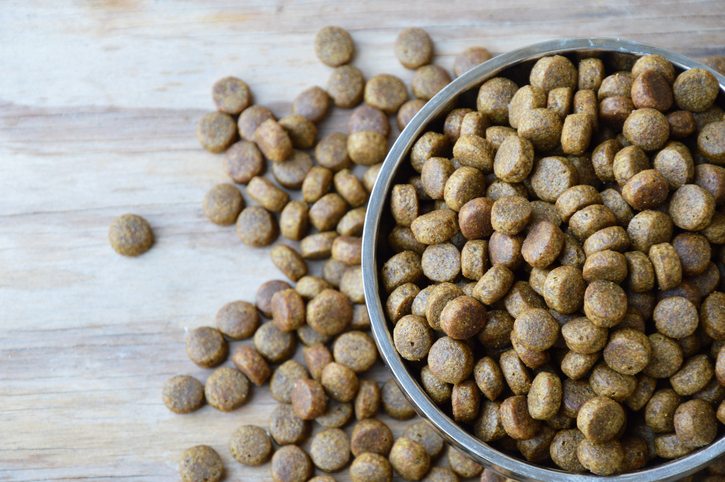
Dogs are among the most popular domesticated animals—both in the world, and in history, so it’s important to know which dog food ingredients are commonly used. Whether they work in the field as shepherds or companions at home, dogs are certainly beloved wherever they can be found.
Like other animals, dogs have their own nutritional needs that must be met in order to ensure a happy and healthy life. The right kind of dog food is essential for making sure that man’s best friend can be his very best self and live a long, healthy life.
Common Dog Food Ingredients
The dog foods you find at feed stores and supermarkets share a number of common ingredients, which can include:
- Cereals, which are basic carbohydrates like grain, rice bran, and beet pulp
- Vegetables
- Fish, which provide both protein and calcium
- Fats and oils, a source for vitamins, as well as the energy that dogs need to survive
- Sodium and chloride
Contrary to popular belief, dogs are not entirely carnivorous, Indeed, they require (and benefit from) regularly consuming non-meat foods.
Dog owners of all types debate the merits of serving their hounds fresh food versus typical dog food. Although both approaches have their merits, many dog owners tend to opt for the latter on the basis of convenience alone. While fresh food offers a greater amount of diet control to the owner, it can be very difficult (and expensive) to constantly provide a balanced diet with the use of fresh food. Your dog’s breed, preferences, and purpose may affect what kind of food is ultimately best for them.
The Best Food for Your Breed
The best food for your dog depends on whether it’s a Small Breed or Large Breed, as defined by the American Kennel Club (AKC). Common large breeds include dobermans, mastiffs, and collies, while common small breeds are cocker spaniels, dachshunds, greyhounds, and terriers. Each breed responds differently to various types of dog food ingredients.
Large breed nutrition focuses on helping young dogs grow into their naturally large sizes without running the risk of obesity, bone problems, and heart issues. A large breed puppy can reach a weight of 150 pounds within the first 18 months of its life. Such rapid growth makes these puppies an especially prime candidate for overfeeding. Thus, large breed dog food typically offers lower amounts of fat, sodium, and vitamin D. The AKC strongly recommends that you avoid food that lists “fats and oils” as its first ingredients, as well as feeding the dog from a feeder or bowl placed at ground level. Larger breeds will also need a healthy amount of exercise in order to avoid weight gain.
Small breed dog food focuses on providing an adequate number of calories within a balanced diet. As strange as it may seem, smaller breeds have higher caloric needs than large breeds because of their higher metabolic rates (which is especially true when they are puppies). The best small breed dog food offers a precise balance of grains, fruits, vegetables, and meats in order to give the dog the nutrients they need. Most foods that meet this requirement will have the statement “complete and balanced” somewhere on the package.
Regardless of breed type, it’s also essential to give your dog a food that is appropriate to their age. Most feed stores and supermarkets will offer separate foods for puppies and adults, although some foods will also be noted as appropriate for all life stages.
